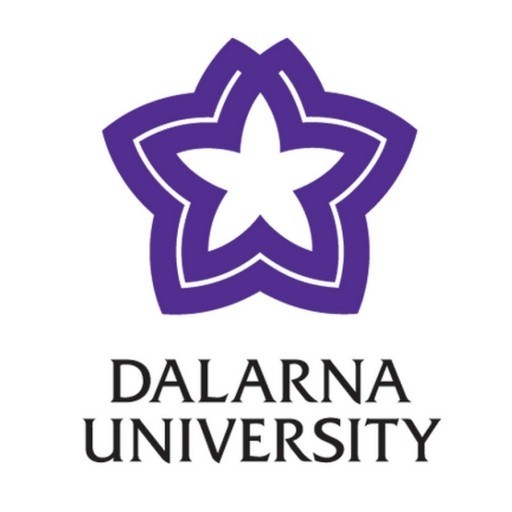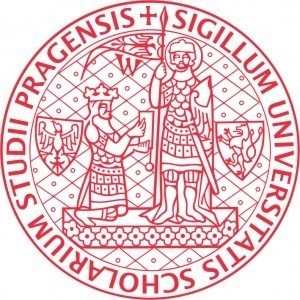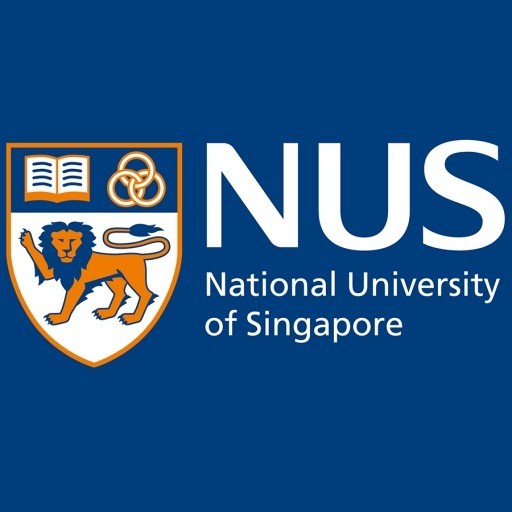Photos of university / #hogskolandalarna
Advertisement
This Masters Degree Programme is based on the research work carried out at DUCIS (Dalarna University Centre for Irish Studies) at Dalarna University. The programme started in 2004 when DUCIS was first established and is run by the English Department. Since then about 50 students have successfully completed the programme, and many of these former students have gone on to do further research in this area or work as teachers of English at universities all over the world.
Why should you take this programme?
* You will develop advanced skills in research methodology thus acquiring an excellent academic basis for further research at doctoral level or work in a wide variety of career choices.
* You will study in an international environment that is stimulating and creative.
* You will be expected to participate actively in seminar discussions and presentations, thus developing excellent oral and written communication skills.
* You will study in close contact with teachers and researchers at DUCIS and work in small seminar groups where everyone has a chance to participate fully.
* You will be encouraged to disseminate your research findings and to participate actively in academic debate by attending conferences and publishing your work.
Who should study English with Specialisation in Irish Literature?
Successful candidates to the programme are those who are interested in becoming part of the international field of Irish Studies, or who have a general interest in literature and culture. The programme is suitable for students with a bachelors degree with a major in English, Comparative Literature, or similar fields. Documented good command of both oral and written English is required. More details regarding prerequisites can be found in the right menu.
The Master’s Programme in English with Specialization in Irish Literature at Dalarna University offers an in-depth exploration of the rich and diverse literary traditions of Ireland. This programme is designed for students who have a passion for literature and wish to develop a comprehensive understanding of Irish literary history, contemporary works, and cultural expression. Throughout the programme, students will engage with a wide range of texts, authors, and genres, from classical Irish myths and medieval poetry to modern and contemporary Irish literature.
The curriculum emphasizes critical analysis, scholarly research, and cultural contextualization, enabling students to explore themes such as identity, nationalism, migration, and social change as reflected in Irish literature. Core courses include Irish literary history, Celtic mythology, modern Irish poetry, and Irish fiction. In addition to coursework, students are encouraged to undertake independent research projects and participate in seminars that foster engaging discussions and scholarly exchange.
The programme also offers modules in literary theory, translation studies, and interdisciplinary approaches, enriching students’ analytical skills and broadening their academic horizons. Practical training in writing, research methods, and academic presentation prepares graduates for careers in academia, publishing, cultural management, or further studies.
Furthermore, the programme provides opportunities for students to immerse themselves in Irish culture through guest lectures, cultural excursions, and collaborations with Irish literary organizations. By the end of the programme, graduates will possess a nuanced understanding of Irish literature’s historical developments, thematic concerns, and cultural significance. They will be equipped with the critical skills necessary to analyze literary texts, conduct independent research, and contribute to the academic and cultural fields related to Irish literature. This programme is ideal for students seeking a comprehensive, scholarly engagement with Irish literary heritage and contemporary expressions.
The program in English specializing in Irish Literature at Dalarna University requires applicants to have completed secondary education comparable to Swedish upper secondary school. A strong proficiency in English is essential, typically demonstrated through standardized tests such as the TOEFL or IELTS, with minimum scores set by the university (e.g., IELTS 6.5 or TOEFL iBT 90). Applicants should submit transcripts verifying their previous academic performance, particularly in subjects related to literature, language, or humanities, to assess their preparedness for advanced studies in Irish Literature. While prior knowledge of Irish history or culture is beneficial, it is not mandatory; however, a demonstrated interest or experience in literary studies will strengthen the application. The program may have specific prerequisites such as introductory courses in literary analysis or Irish studies, but generally, it welcomes applicants with a background in English literature or related disciplines. International students are advised to provide proof of identity and legal eligibility to study in Sweden, along with any necessary visa documentation. The admission process involves an evaluation of academic records, language proficiency, and motivation letters where candidates express their interest in Irish literature and their career objectives. No standardized entrance exam is required, but an interview or written motivation statement might be part of the selection process, especially for competitive applicants. Once admitted, students are expected to participate actively in lectures, seminars, and independent study modules, completing assignments, essays, and examinations as scheduled. The program emphasizes critical thinking, literary analysis, and cultural understanding of Irish literary traditions, from early folklore to contemporary works. To retain good standing in the program, students must meet the academic standards set by Dalarna University, including passing all coursework and exams. Furthermore, students should familiarize themselves with the university’s academic integrity policies and requirements for graduation, which include completing a certain number of credits and a thesis project focusing on Irish literature topics. The program encourages participation in related extracurricular activities, such as literary seminars, visiting lectures, and student exchanges, to enrich their understanding and appreciation of Irish culture and literary heritage. Overall, the program aims to equip students with deep knowledge of Irish literary history, texts, and critical methodologies, preparing them for careers in academia, publishing, cultural management, or further postgraduate studies.
The financing of the English Specializing in Irish Literature program at Dalarna University is primarily structured around a combination of tuition fees, government grants, and student loans, consistent with the university’s policies for international students. For students residing within the European Union/European Economic Area, the program generally does not require tuition fees, in line with Swedish higher education regulations that promote accessible education for EU/EEA citizens. Non-EU/EEA students, however, are typically subject to tuition fees, which vary depending on the year of enrollment and the specific program structure.
Potential students are encouraged to explore the Dalarna University scholarship opportunities, which include merit-based scholarships and grants aimed at supporting students with demonstrated academic excellence. These scholarships can significantly reduce the financial burden associated with tuition fees and, in some cases, cover living expenses partial or fully. The university also provides information about external funding sources, including Swedish government scholarship programs for international students, a resource that can be vital for students seeking full or partial coverage of their studies and living costs.
Finnish students and residents of Sweden may be eligible for student financial aid through the Swedish State Educational Loans Fund (CSN), which provides loans and grants to support higher education. International students from countries outside the EU/EEA are generally not eligible for such support unless they have permanent residence status or meet specific criteria.
Students are advised to budget for additional expenses, including housing, transportation, textbooks, and personal expenses. Dalarna University offers various accommodation options, with associated costs that can be financed through savings, loans, or part-time work opportunities available in the region. Many students supplement their income through part-time employment, as Sweden's labor market allows international students to work a limited number of hours during semester periods.
Furthermore, the program’s cost structure and available funding options are periodically reviewed and updated by the university, and prospective students are advised to consult the official Dalarna University website and admissions office for the most current information. Overall, students should plan their finances carefully, considering the combination of tuition fees, potential scholarships, government grants, personal savings, and part-time work possibilities to effectively finance their studies in Irish Literature at Dalarna University.
The English Specializing in Irish Literature program at Dalarna University offers students an in-depth exploration of Ireland’s rich literary tradition. The program is designed for students with a keen interest in Irish culture, language, and literary history, aiming to develop their analytical and critical skills through comprehensive coursework. Throughout the program, students engage with a wide range of texts from different periods, including medieval Irish poetry, classic Irish literature, and contemporary writings. The curriculum emphasizes understanding the cultural and historical contexts that have shaped Irish literary production, offering insights into Ireland’s social, political, and linguistic evolution.
Students have opportunities to study Irish literature in both historical and contemporary contexts, exploring works by renowned authors such as Jonathan Swift, W.B. Yeats, James Joyce, Samuel Beckett, and Seamus Heaney. The program also incorporates interdisciplinary approaches, combining literary analysis with cultural studies, history, and language studies. This comprehensive approach enables students to critically assess literary texts and appreciate their significance within Irish society and beyond.
In addition to coursework, students may participate in seminars, workshops, and research projects that foster active engagement with academic debates in Irish Studies. The program also emphasizes proficiency in the Irish language, where relevant, to enable students to access original texts and deepen their understanding of Ireland’s linguistic heritage. Career prospects for graduates include roles in academia, publishing, cultural institutions, translation, and media, among others.
The program is structured to provide flexibility, allowing students to tailor their studies according to their specific interests within Irish literature. With a focus on academic rigor and cultural relevance, the Irish Literature specialization at Dalarna University prepares students for further research or entry into professional fields related to Irish culture and literary studies. The university's supportive academic environment includes experienced faculty, specialized resources, and access to relevant literary and cultural archives. Overall, this program offers an enriching academic experience that broadens understanding of Irish literary heritage and enhances critical thinking and research skills in the field of literature.








